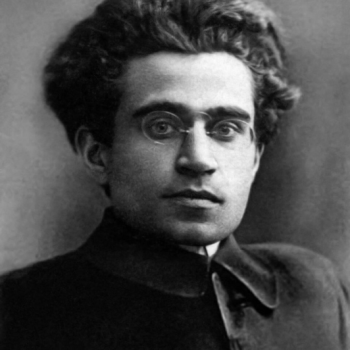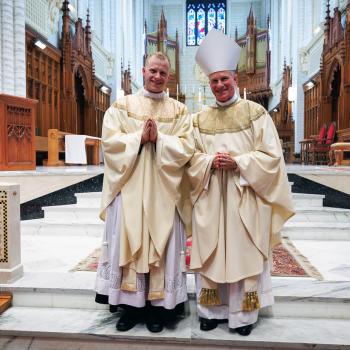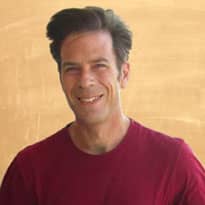For the past few weeks in First Things, Elizabeth Scalia probed her way down what might yet prove to be the right path. Borrowing a phrase from Tony Award winner Larry Kramer, she proposes that gays and lesbians are a "'necessary other,' created and called to play a specific role in our shared humanity." As to what that role might be, she suggests, with sensible caution, that creating works of art and service in the priesthood might represent two likely facets.
On reading her essay, a gay friend of mine remarked, "We're not all artistic geniuses, you know. That's like saying every white boy from the Carolinas is called to drive a stock car." Speaking as a descendant of Jews and Armenians who is living in penury, I take his point all too well. Then there's the unfortunate association, in the popular Catholic imagination, of gay priests with dissent—at best. Even if Elizabeth is right on that point, making it stick will be less like selling frostbite to Eskimos than selling Eskimos to seals. Nevertheless, she presents same-sex inclination as a positive, not a negative. That alone is a big deal.
There are many aspects of Courage International, the ministry that purports to help "those with same-sex attractions" live chastely, that many gays and lesbians would find distasteful, if not insulting. First, the very name is manipulative; living the chaste life can just as easily reflect timidity as its opposite. Worse, it's a twelve-step program, on the AA model; these days, any equation between a functional relationship and a destructive vice will sink like a lead balloon, as it should. But somewhere in that muck is a tiny gem, and that is the promotion of what Courage International's literature calls "The truth that chaste friendships are not only possible but necessary."
Perhaps Courage defines these narrowly, as communally supervised relationships in which no party is afforded even the opportunity to have sex. I would hope not, because the romantic—that is, sexless but exclusive—friendship is a tried and true tradition among Catholics. Marc-Andre Raffalovich (a Catholic convert and Dominican tertiary) and John Gray (a convert who became a priest) formed such a friendship after Oscar Wilde discarded them both. Blessed John Cardinal Newman seems to have carried on a similar relationship with Ambrose St. John. Being offered the chance to form one-on-one commitments is a lot less infantilizing than being corralled into community and encouraged to view oneself as an addict or parolee.
In any case, these are just guesses. Hopefully, those in positions of responsibility will perceive the need to think the matter through to a logical and workable conclusion. I do find some encouragement in a recent op-ed piece written by Joseph Sullivan, retired auxiliary bishop of Brooklyn, "Catholics Increasingly Reaching Out to the LGBT Community." As much as anything, Sullivan's use of the term "LGBT"—meaning "Lesbian, Gay, Bisexual and Transgendered"—impressed me. Not only does it lack the prissy, clinical, handling-with-tongs feel of "homosexual," the word most official Church spokespeople pointedly prefer, it makes Sullivan sound a lot more inclusive than me.
It's like hearing grandpa drop the word "colored"—a small step, but better than none at all. In the Church, we're used to measuring progress in millimeters.





